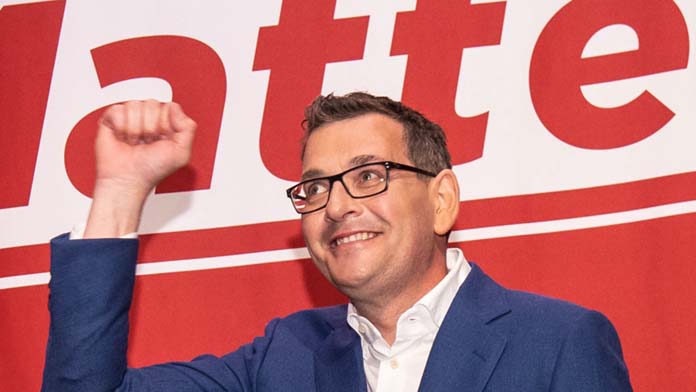Victoria’s election delivered humiliation for the Liberals and ended with Labor’s Daniel Andrews comfortably re-elected for the third time.
Before the election the media speculated that Labor might be forced into minority government. But its majority in parliament is likely unchanged on its “Danslide” victory in 2018. The Greens increased their seats in the lower house to four.
While Labor’s primary vote fell 6 per cent, the Liberals also lost 0.8 per cent of the vote, with the trend of declining votes for the major parties continuing.
Despite frustration with Labor, most voters could not bring themselves to back the Liberals. A range of smaller parties gained votes that flowed back to Labor on preferences.
The election was widely seen as a referendum on Andrews’ pandemic management—with the Premier claiming vindication in the aftermath. But the result showed the different experience of the pandemic in class terms.
Labor suffered large swings against it in Melbourne’s poorer north and west, which bore the brunt of lockdowns, authoritarian policing and COVID fines.
In two party terms there was a 12.6 per cent swing to the Liberals in St Albans, 11 per cent in Thomastown and 10.8 per cent in Kororoit in Melbourne’s west. But Labor’s big margins here meant the party was able to avoid losing any seats.
Lack of services in western Melbourne were another source of anger—symbolised by the Melton hospital, where the construction start date is still two years away.
By contrast Labor increased its vote in some of the wealthier seats in Melbourne’s east, even taking seats such as Bayswater, Glen Waverley and Hastings from the Liberals. Here most people had jobs where they could work from home, unlike the essential workers who had to keep going into work during lockdowns.
In the upper house Labor, The Greens, Legalise Cannabis and Animal Justice will also probably have 22 of the 40 seats, meaning there will be a progressive majority in the new Legislative Council.
Liberals trounced
The Liberals’ result exposed a deep crisis—with the party shunned by young voters, women and multicultural communities.
They were discredited by far-right candidates such as Renee Heath, member of the homophobic, transphobic and anti-abortion City Builders Church, and Timothy Dragan, who was recorded saying that he wants to ban abortion and didn’t think Indigenous people should be recognised.
Leader Matthew Guy distanced the Liberals from Heath and said she would be a “Liberal independent” but the link between the Liberals and conservative religion was established. Still listed on the Liberal ticket, Heath went on to win a seat in the upper house.
The Liberals are tainted by corruption scandals like Guy’s infamous “lobster with a mobster” dinner in 2017. Two weeks before election day Guy and his former chief of staff Mitch Catlin were referred to the anti-corruption commission after Catlin asked a billionaire donor to pay over $100,000 to his marketing company.
Labor portrayed Guy as “the cuts guy”, which they contrasted with Labor policies like bringing back the State Electricity Commission and increasing spending on childcare, which includes establishing 50 affordable, government-owned childcare centres in so-called “childcare deserts”. Guy resigned as Liberal leader following the election loss.
The Nationals won back some regional seats from independents, and teal independents also failed to take any seats.
Victorian Greens leader Samantha Ratnam initially described The Greens’ performance as a “Greenslide” but in the end The Greens took only Richmond from Labor, with the help of Liberal preferences.
The Greens also retained Melbourne, Prahran and Brunswick. While their vote increased, this came overwhelming from inner-city seats, flatlining or declining in outer-suburban areas.
The Victorian Socialists got close to 10 per cent of the vote in some seats, like Footscray and Broadmeadows, benefiting from the disillusionment with the major parties. But they were unable to win hoped-for seats in the upper house.
Despite Daniel Andrews’ boast about his progressive government, there are serious problems around the health system, public sector wages and public housing. Labor has presided over a declining public housing sector, while massively increasing spending on police and prisons.
The Victorian government has started the process of negotiating a treaty with First Nations Victorians. But, according to Jill Gallagher, CEO of Victorian Aboriginal Community Controlled Health Organisation, “In Victoria, more Aboriginal people have died in custody in the last five years than the previous 25.”
Teachers’ and public servants’ pay is falling due to inflation and the 1.5 per cent pay cap, with little opposition from the unions, who simply fell in behind Labor. Strike action is needed to scrap Labor’s pay cap.
The left needs to channel anger over the neglect of public services into struggle through our unions and in campaigns on the streets.
By Lachlan Marshall






